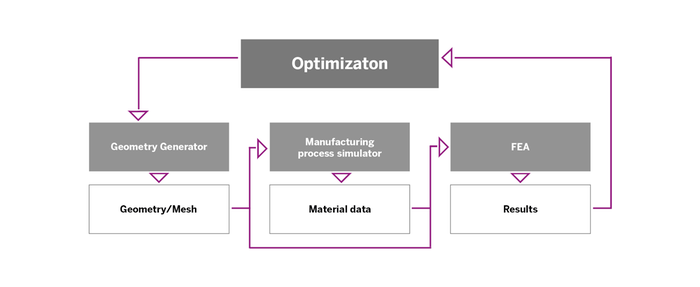ODISSEE2

Lighter and more durable castings can lead to reduced emissions and faster development of future trucks, cars and chainsaws. In ODISSEE2, the researchers are establishing new methods to develop more robust and weight-efficient castings by integrating different simulation tools.
Introduction
In order to develop light and durable products with high performance, design engineers need to stretch the limits for what load different parts of the product can withstand without breaking. Already in the design phase of the different parts, the manufacturing process needs to be considered, as well as the strength and quality of the material. In order to do that, design engineers can utilize different computer-based simulation techniques. But when different persons and software are to collaborate, it can be hard or impossible to handle the complex interactions between design, manufacturing and performance.
Purpose
ODISSEE2 stands for Optimal Design using Integrated Simulation baSed engineering, Part 2. The purpose of this project is to investigate how the complex interactions between design, manufacturing and durability in castings can be handled by approaching them as a knowledge-based optimization problem.
The aim is to combine different types of computational simulation techniques to a common methodology which enables shorter times for product development while both the performance and lifetime of the product increases.
Expected results
The project is expected to lead to new methods that can contribute to improved collaborations between design engineers and manufacturers of castings. By investigating how geometry and manufacturing process affect the expected lifetime of the casting, the project is expected to also contribute with new insights on how these complex interactions can be handled early in the development work.
Collaboration partners
- Husqvarna
- Kongsberg Automotive
- SCANIA
- Volvo Cars
Project duration and financing
The project is running from January 2018 until December 2020 and is co-financied by the Swedish Knowledge Foundation.

Contact information
If you would like to know more about the project, please contact project leader Jakob Olofsson.
